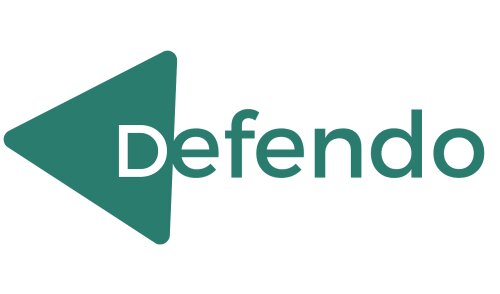Best Will & Testament Lawyers in Santiago
Share your needs with us, get contacted by law firms.
Free. Takes 2 min.
List of the best lawyers in Santiago, Chile
About Will & Testament Law in Santiago, Chile
A Last Will and Testament is a legal document that allows individuals to state their wishes regarding the distribution of their assets after death. In Santiago, Chile, Wills are governed by the Chilean Civil Code, which establishes the rules for creating, executing, and contesting Wills. A valid Will ensures your estate is distributed according to your preferences, providing peace of mind and legal clarity for your loved ones. Without a Will, Chilean inheritance laws determine who inherits your assets, which may not align with your intentions.
Why You May Need a Lawyer
While it is possible to draft a Will without legal help, involving a lawyer offers many advantages. Common situations where legal advice is recommended include:
- Ensuring your Will is legally valid and cannot be easily contested
- Handling complex family situations, such as blended families or dependents with special needs
- Managing significant or diverse assets, such as property, businesses, or foreign investments
- Reducing the risk of errors that could render the Will invalid under Chilean law
- Updating your Will after major life changes such as marriage, divorce, or the birth of children
- Assisting non-Chilean residents or foreigners with Chilean assets
- Guidance during inheritance disputes or when contesting a Will
A lawyer can ensure your Will meets all legal requirements and faithfully represents your wishes.
Local Laws Overview
The Civil Code of Chile sets out specific rules for Wills. Some key aspects include:
- Types of Wills: The most common are open public Wills (wills signed before a notary and witnesses) and closed Wills (sealed and delivered to a notary). Holographic Wills (handwritten) are rarely used due to strict requirements.
- Forced Heirship: Chilean law protects certain heirs, such as children, spouses, and sometimes parents, who have an automatic right to a portion of the estate (known as the legítima). You cannot freely dispose of 100 percent of your assets.
- Capacity: Only adults with full mental capacity are allowed to make a Will. In some cases, emancipated minors can also create a Will.
- Witnesses: An open Will must generally be signed in the presence of at least three witnesses with no direct interest in the inheritance.
- Revocation: Wills can be revoked or amended at any time by the person who made the Will, as long as legal formalities are followed.
- Probate Process: After death, the Will must be presented to a notary and the courts as part of the probate process to validate and execute its terms.
Understanding these local laws is essential to ensure your Will is valid and reflects your intentions.
Frequently Asked Questions
What happens if I die without leaving a Will in Santiago, Chile?
If you die intestate (without a Will), Chilean inheritance laws determine how your estate will be divided among eligible relatives. The surviving spouse, children, and sometimes parents will inherit according to set rules, which may not match your wishes.
Can I leave all my assets to anyone I wish?
No. Chilean law has a system of forced heirship. A portion of your estate, the legítima, must go to certain close relatives. The remaining part, called mejora and cuarta de libre disposición, can be assigned more freely but still within limits.
Do I need a notary to validate my Will?
In practice, most Wills in Chile are executed before a notary with witnesses to ensure validity. This also simplifies later steps in the probate process. While a handwritten Will is theoretically possible, it is subject to strict requirements and is less common.
Can foreigners make a Will for their assets in Chile?
Yes. Foreigners with assets in Chile can create a Will under Chilean law. It is highly recommended to seek legal advice to ensure proper coordination between Chilean and foreign Wills if assets are held internationally.
Can I change or revoke my Will later?
Yes. You can update, amend, or revoke your Will at any time, provided you have legal capacity and respect the proper legal process.
What is the probate process in Santiago, Chile?
After death, the Will must be registered with a notary public and processed through the courts. The probate process involves identifying heirs, settling debts, and ensuring assets are distributed according to the Will.
Do stepchildren automatically inherit in Chile?
Stepchildren are not considered forced heirs under Chilean law. If you wish for stepchildren to inherit, you need to specifically include them in your Will, subject to the limitations imposed by forced heirship.
Is it necessary to specify an executor in my Will?
Appointing an executor is recommended but not mandatory. The executor is responsible for carrying out the instructions in the Will and managing the estate during probate.
Can I exclude a forced heir from my Will?
It is very challenging to disinherit a forced heir such as a spouse or child. Only in specific cases, such as serious misconduct proven in court, can this be done. In general, forced heirs are protected by law.
How can I ensure my Will is not contested?
To reduce the risk of disputes, have your Will prepared and witnessed according to Chilean law, ensure clarity in your instructions, seek professional legal advice, and communicate your intentions to your family if possible.
Additional Resources
If you need further information or assistance, consider the following resources:
- Servicio de Registro Civil e Identificación - Handles official registrations, including deaths and some aspects related to Wills
- Colegio de Notarios de Chile - Directory of notaries throughout Chile
- Poder Judicial de Chile - The court system processing inheritance cases
- Ministerio de Justicia y Derechos Humanos - Oversees legal frameworks for inheritance and family law
- Legal clinics at local universities - Offer free or low-cost advice for those unable to afford private legal counsel
Next Steps
If you are considering creating or updating your Will in Santiago, Chile, or have concerns about inheritance matters, here are the steps you should take:
- Reflect on your wishes for the distribution of your property and identify your intended beneficiaries.
- Gather up-to-date documentation relating to your assets, family members, and any prior Wills.
- Consult with a qualified Chilean lawyer specializing in inheritance and family law to discuss your particular situation.
- Prepare your Will according to legal requirements, ideally in the presence of a notary and witnesses to ensure validity.
- Review your Will regularly, especially after significant life changes, and update it as necessary.
- Inform a trusted individual or your designated executor of the location and details of your Will.
Professional legal assistance can help you navigate the complexities of Will and Testament law in Santiago, Chile, ensuring that your wishes are respected and your loved ones are protected.
Lawzana helps you find the best lawyers and law firms in Santiago through a curated and pre-screened list of qualified legal professionals. Our platform offers rankings and detailed profiles of attorneys and law firms, allowing you to compare based on practice areas, including Will & Testament, experience, and client feedback.
Each profile includes a description of the firm's areas of practice, client reviews, team members and partners, year of establishment, spoken languages, office locations, contact information, social media presence, and any published articles or resources. Most firms on our platform speak English and are experienced in both local and international legal matters.
Get a quote from top-rated law firms in Santiago, Chile — quickly, securely, and without unnecessary hassle.
Disclaimer:
The information provided on this page is for general informational purposes only and does not constitute legal advice. While we strive to ensure the accuracy and relevance of the content, legal information may change over time, and interpretations of the law can vary. You should always consult with a qualified legal professional for advice specific to your situation.
We disclaim all liability for actions taken or not taken based on the content of this page. If you believe any information is incorrect or outdated, please contact us, and we will review and update it where appropriate.









